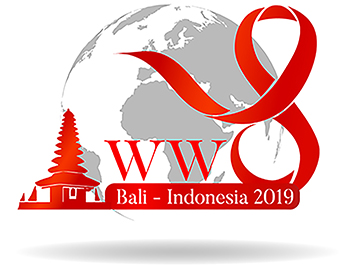|
Intan Pertiwi, I Gede Marantika Yogananda Sutela, Patricia Eviana Cahyadi, Muhammad Faisal Putro Utomo, IGA Diah Ambarawati
School of Medicine, Udayana University, Badung, Bali, Indonesia.
Abstract
Objective: The number of HIV/AIDS cases in Bali Province alarmingly increases from year to year. In 2017 there were 1,931 new cases of HIV recorded bringing the total of recorded cases in Bali to 17,024. The high number of PLWHA in Bali is not accompanied by sufficient understanding and knowledge about the infection. Healthcare workers are no exception. The purpose of this study is to assess the level of knowledge, risk perception and attitudes towards PLWHA among clinical dental students of Udayana University.
Methods: This research is a descriptive cross-sectional study, conducted at the School of Dentistry, Udayana University. The subjects chosen were clinical dental student selected by a consecutive sampling technique. Data were collected using a questionnaire containing 7 questions relating to the student's attitudes toward PLWHA, 10 questions related to the student's perceptions of the risk of treating PLWHA, and 30 questions related to their general knowledge about HIV. Data were analysed using SPSS version 20 and is presented in tables and narratives.
Result: From a total 85 respondents, the majority were female (69,4). This study showed 52.9% subjects have good risk perceptions about HIV, but the proportion of accurate knowledge about HIV was only 43.5%. Sampling those with good risk perceptions but without sufficient knowledge about HIV resulted in a dominant negative attitude (57.6%), indicating most students would be intolerant, lacking both theoretical and practical preparation, when treating patients with HIV.
Conclusion: The low level of knowledge about HIV needs improvement to compensate for the high perceptions of risk in order that clinical students can show a better attitude in treating patients with HIV; this should include both theoretical knowledge and practical skills. Further study is needed to explore more about the risk factors associated with low levels of knowledge and bad attitude toward PLWHA. |



